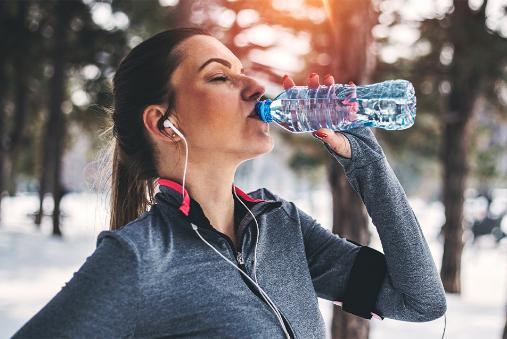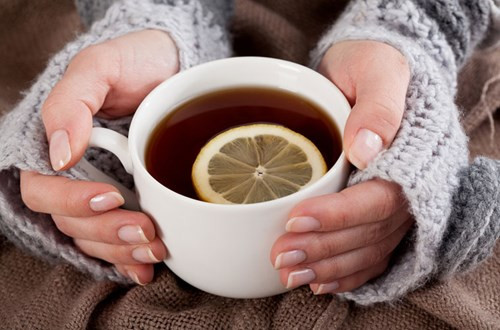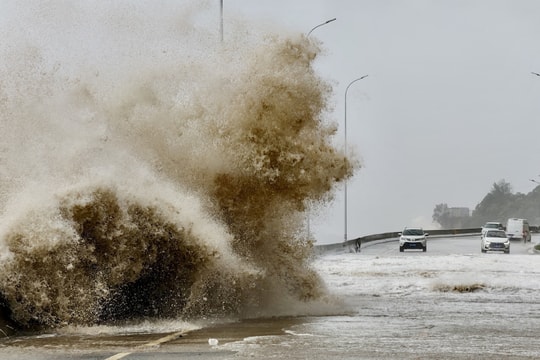5 Reasons You Should Drink More Water in Winter
Many people think we need less water in winter but in fact the human body still needs water every day. Not drinking enough water in winter can easily lead to health problems.
On hot summer days, drinking a glass of cool water always makes you feel refreshed and you tend to want to drink more water. But when winter comes, the temperature drops so many people do not want to drink water and only drink when they are thirsty without knowing that they can easily get dehydrated even in winter.
1. Dehydration makes the body tired and leads to bad consequences.
Water is an essential component and accounts for approximately 60-70% of the human body weight. The body depends on water to survive and regulate essential daily functions including maintaining homeostasis, transporting nutrients, eliminating waste products, and hydrating tissues and organs. Lack of water can increase the risk of developing kidney stones, urinary tract infections, constipation, and even life-threatening low blood pressure and heart failure.

Mild dehydration impairs the function of the cells that line blood vessels in much the same way as smoking. Dehydration is also linked to inflammation, stiffening of the arteries, blood pressure regulation, and other factors that can increase the risk of heart disease and stroke.
Even mild dehydration—the level at which people start to feel thirsty—has been linked to difficulty concentrating, poor memory, and poor mood. Studies have shown that people who regularly drink less water have a higher risk of chronic kidney disease, kidney stones, and urinary tract infections. Research has also linked poor hydration to diabetes.
2. How much water do people need?
Our water needs vary from day to day based on factors such as ambient temperature and activity level. If you are a high-intensity exerciser or exercise for more than 4 hours a day, your water needs will be higher than someone who is sedentary. The environment you live or travel to also makes a big difference in how much water you consume. Hot or cold weather and high altitude can all affect your body and lead to dehydration if you do not drink enough water.
Associate Professor, Dr. Nguyen Thi Lam, former Deputy Director of the National Institute of Nutrition:
Each age group has different drinking water needs. Children should drink 1 liter of water per day, older children 50ml of water per 1kg of body weight, adults 2-2.5 liters of water per day, people who do heavy labor or sweat a lot need an additional 500ml-1 liter of water per day.
According to the US federal Institute of Medicine, women should drink 2.7 liters and men 3.7 liters of water per day. This may sound like a lot, but this includes the drinks and foods we eat every day. Of which, the amount of water from food contributes about 20% of the total daily water intake, so in general, women should drink 8-10 glasses and men should drink about 10-12 glasses of water per day (each cup has a capacity of 200ml).
In winter, if you are lazy to drink water, you should increase your consumption of foods with high moisture content such as soups, fruits and vegetables that contain a lot of water such as broccoli, strawberries, watermelon, and celery.
3. 5 reasons why drinking more water in winter is important
3.1 Overcoming dehydration in winter
You might think that in the winter you sweat less so you don't need to drink as much water. However, you may not sweat as much in the winter but you do lose moisture in other ways, which can lead to dehydration.
In winter, the humidity in the environment is often drier, making it easier for your body to lose more water through breathing. Additionally, in cold environments, the kidneys actually excrete more urine, making the body more susceptible to dehydration.
When the weather gets colder, you may not notice you’re sweating. Sweat, combined with extra layers of clothing and drier air, can cause you to lose water without even realizing it. That’s why it’s important to drink water throughout the day.
3.2 Drinking enough water helps lose weight
Winter is the season when you need to replenish your energy to keep yourself warm. That is why people often gain a few pounds during winter. However, drinking plenty of water will help your body digest food easily. Drinking water can also help fight hunger. Instead of reaching for a bowl of snacks, drink a glass of warm water to help yourself burn a few calories.

3.3 Hydration helps the body fight fatigue
It is normal to feel a little sluggish during the winter and combat daytime fatigue with a cup of coffee or tea. However, a healthy way to combat fatigue during the winter is to drink more water. Dehydration can make you feel sluggish. To keep yourself alert and energized on a gloomy winter afternoon, drink water regularly.
3.4 Drinking enough water helps keep skin cleaner
Drinking less water during winter can lead to skin irritation and breakouts. Drinking more water helps your body flush out impurities that cause skin problems. During winter, the cold winter air and dry air from heaters can leave your skin dull and dry. Drinking more water keeps your skin hydrated, making your face look healthy and radiant.
3.5 Water helps detoxify the body
Drinking enough water will flush out toxins from your body and thus keep you healthy. During winter, people tend to be less active and avoid physical activities, so drinking plenty of water, especially warmer water in winter, is especially important.
Fluids from tea and coffee also count toward hydration, experts say. Even soda and juice technically contribute to daily fluid intake, although experts don't recommend them because of their high sugar content. It's important to avoid coffee and alcohol as much as possible. These drinks can dehydrate the body even more.


.jpg)


.jpg)

